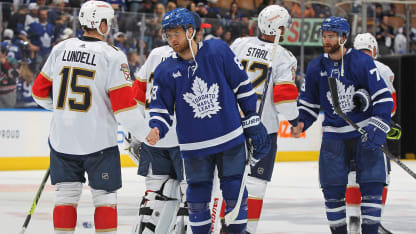Forwards Auston Matthews, John Tavares, Mitch Marner and William Nylander take up about half of the Maple Leafs salary cap. They are paid to score. And during the regular season, that's exactly what they did, combining for 146 goals. Then came the second round against the Florida Panthers, and all that changed. Nylander, who scored 40 goals during the regular season, had two in five games against the Panthers. Marner (30 regular season goals) had one. Matthews (40) and Tavares (36) didn't score at all. That can't happen for this team to be successful. Sure, it's a cliche, but your best players must be your best players if you want to succeed in the Stanley Cup Playoffs, and they simply weren't. For the "Core Four" to combine for three goals against the Panthers was a recipe for the Maple Leafs to be eliminated, and that's exactly what happened.

